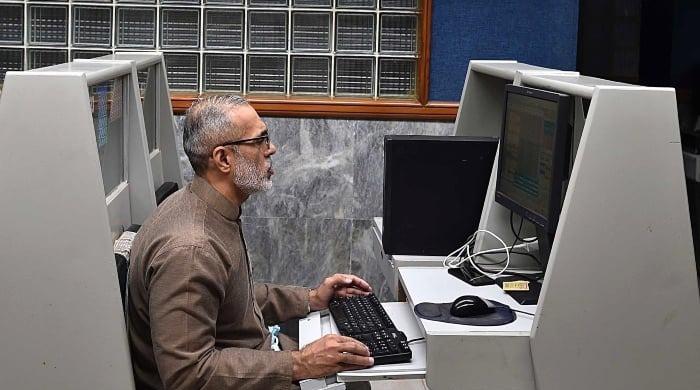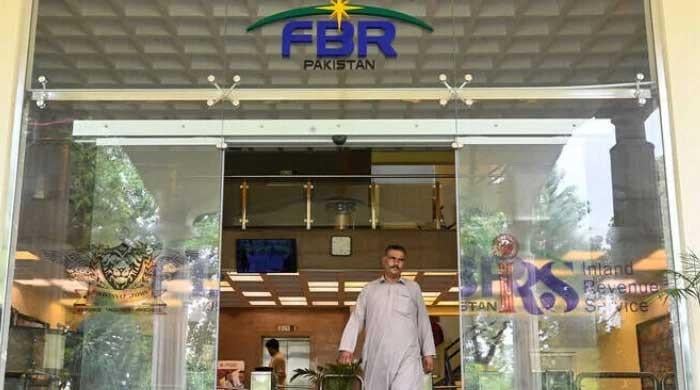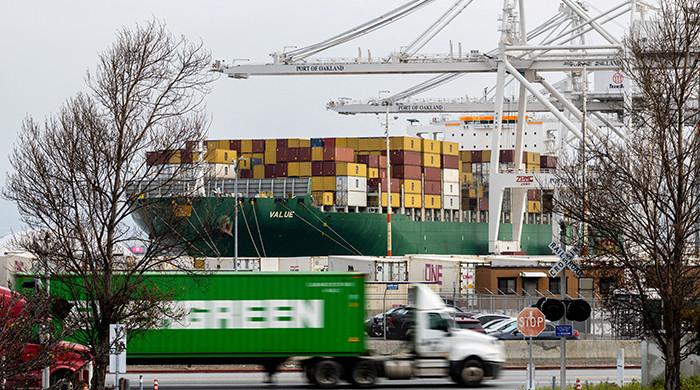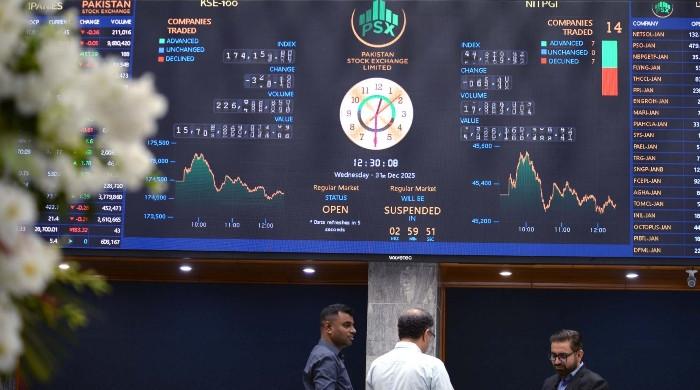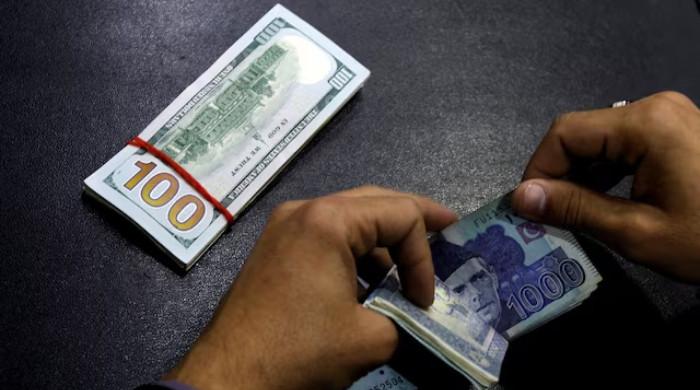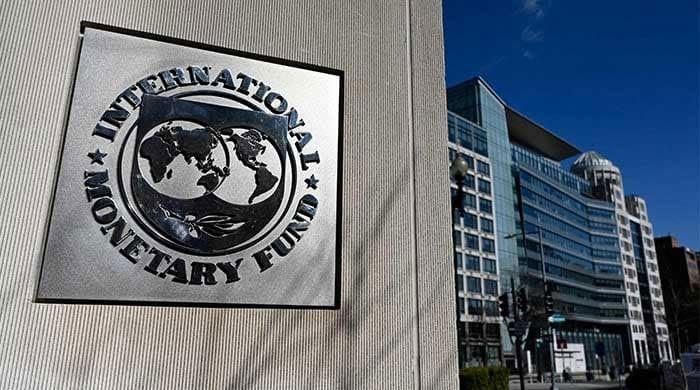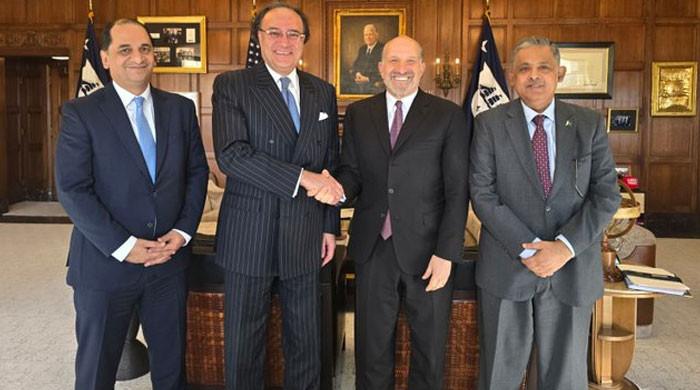Govt to introduce new policy for existing refineries soon
Minister confirms crude oil vessel from Russia is scheduled to arrive at Oman port on May 27-28
May 25, 2023
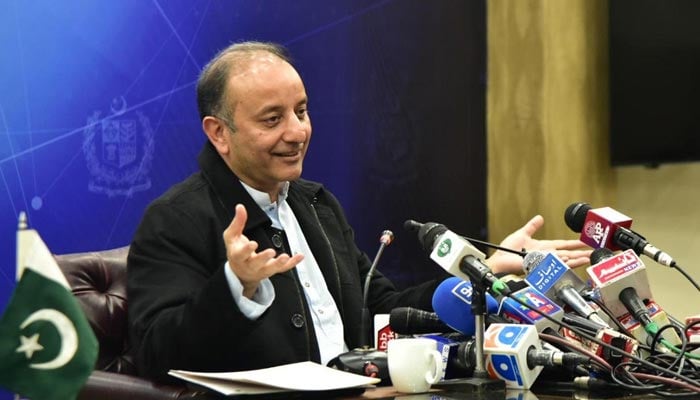
- New policy is in the final stage and will offer incentives to refineries.
- Investors will be granted protection under Foreign Investment Act 2022.
- Crude oil vessel from Russia will arrive at Oman port on May 27-28.
ISLAMABAD: Minister for State on Petroleum Musadik Malik announced that Pakistan is set to introduce an oil refining policy for existing refineries, referred to as brownfield sites, within next two weeks, The News reported Thursday.
Malik, while speaking to a group of journalists, revealed that the policy is in the final stage and will be offering incentives to encourage refineries to upgrade their outdated machinery with better technology.
"The policy is aimed at providing various incentives to the refineries as Pakistan's demand for petroleum products is expected to rise to 33 million tonnes in the next nine years," he said.
The minister said the government for the first time in a few decades, has decided to offer several offshore sites for oil and gas exploration and development to the investors.
It should be noted that the government has recently approved a new greenfield oil refining policy aimed at attracting foreign investment to the country's petroleum sector. The policy seeks to facilitate the installation of a new deep-conversion refinery capable of processing 400,000 barrels of oil per day.
Pakistan's greenfield policy for establishing new refineries sets a strict timeline, requiring private investors or the government to achieve "financial close" within five years or risk losing out on incentives, clarified the minister.
He emphasised that this policy has a definitive time frame, and aims to ensure timely progress in refinery establishment. Malik also emphasised the importance of energy security in Pakistan's economic development. To encourage foreign investors, the government will offer tax exemptions and incentives.
The locations where the new refineries will be established will be designated as special economic zones (SEZs), offering favourable conditions for investors.
Investors in oil refining projects will be granted protection under the Foreign Investment Act 2022 to safeguard their interests. The minister said the country's annual demand for petrol and diesel is approximately 20 to 21 million tonnes a year and currently, local refineries cater to around 10 to 11 million tonnes per year of the nation’s oil requirements, particularly with the decrease in consumption of furnace oil.
He also said existing refineries have a refining capacity of 18 to 20 million tonnes per year. However, considering the projected growth and increasing energy demands, it is estimated that Pakistan's annual consumption of petrol and diesel will reach 33 million tonnes by the year 2032.
In light of the anticipated high fuel demand, the minister stressed the need to construct a refinery with a capacity of 300,000 to 400,000 barrels. He also emphasised over the importance of crude oil storage for the country's energy sector.
The approval of the new greenfield oil refining policy and the attraction of foreign investment are crucial steps in Pakistan's pursuit of energy security and economic progress.
These efforts aim to strengthen the domestic petroleum industry, enhance self-sufficiency, and meet the future energy needs of the nation. Regarding incentives, Malik mentioned that investors planning to install a new refinery with a capacity of over 300,000 barrels per day will receive a 20-year tax break.
Additionally, a deemed duty of 7.5% will be offered on the import of petrol and high-speed diesel for 25 years. For new refineries with a capacity of less than 300,000 barrels per day, a 10-year tax holiday and 7.5% deemed duty on petrol and diesel for 10 years will be provided.
The minister also highlighted the LPG Air mix policy as part of the government's comprehensive energy strategy. This initiative aims to address areas with insufficient natural gas supply by utilising the private sector to provide LPG (liquefied petroleum gas) as an alternative.
Shipment of Russian crude oil to arrive at Oman Port
Regarding the logistics of incoming shipments, Malik disclosed that a crude oil vessel from Russia is scheduled to arrive in Oman on May 27-28. From there, the oil will be transported to Pakistan via smaller ships which will take around two weeks to reach Pakistan. The initial shipment will deliver 100,000 tonnes of oil.
Explaining the choice of an Omani port for anchoring the ship, the minister said Pakistani ports lack the capacity to accommodate vessels carrying more than 50,000 tonnes of goods.
It is worth noting that Pakistan placed its first order for discounted Russian crude oil under a new deal between Islamabad and Moscow on April 20. Initially, Pakistan's Refinery Limited (PRL) will refine the Russian crude, with other refineries to be included later after a trial run.




